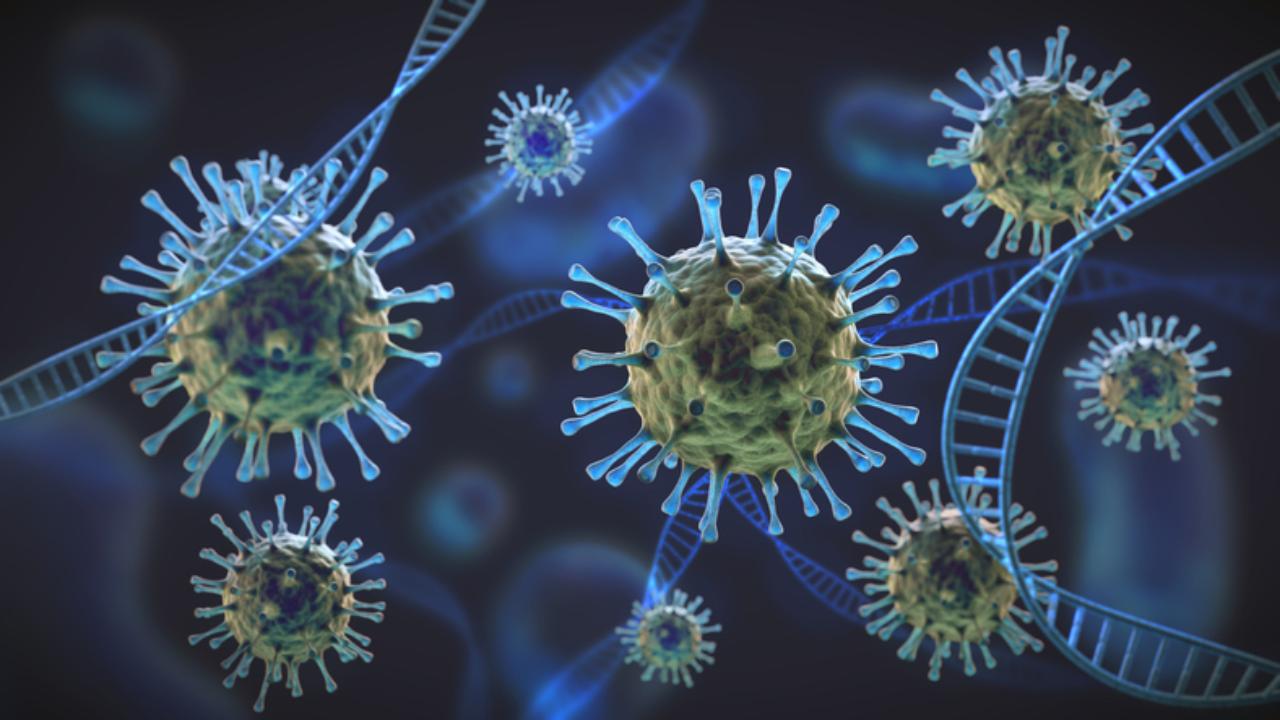Currently identified as B.1.1.529, the new variant has also been found in Botswana and Hong Kong in travelers from South Africa

Image for representation: iStock
A new coronavirus variant has been detected in South Africa that scientists say is a concern because of its high number of mutations and rapid spread among young people in Gauteng, the country's most populous province, Health Minister Joe Phaahla has announced.
ADVERTISEMENT
South Africa has seen a dramatic rise in new infections, Phaahla said at an online press briefing. “Over the last four or five days, there has been more of an exponential rise,” he said Thursday, adding that the new variant appears to be driving the spike in cases. Scientists in South Africa are working to determine what percentages of the new cases have been caused by the new variant.
Currently identified as B.1.1.529, the new variant has also been found in Botswana and Hong Kong in travelers from South Africa, he said.
The World Health Organisation is monitoring the new coronavirus variant B.1.1.529 first detected in South Africa and will hold a "special meeting" on Friday to discuss if the heavily mutated strain will become a variant of interest or a variant of concern, a top official said. The new variant has been red-flagged by scientists over an alarmingly high number of spike mutations that might make the virus more resistant to vaccines, increase its transmissibility and lead to more severe COVID-19 symptoms.
"There are fewer than 100 whole genome sequences that are available. We don't know very much about this yet. What we do know is that this variant has a large number of mutations. And the concern is that when you have so many mutations, that can have an impact on how the virus behaves," Infectious Disease Epidemiologist and COVID-19 Technical Lead at the WHO Maria Van Kerkhove said during a virtual Q&A session on Thursday.
Kerkhove noted that the WHO was tracking at least 30 sub-lineages of the highly transmissible Delta variant, which is also evolving. Against the backdrop of the new variant being detected in South Africa, Dr Mike Ryan, Executive Director of the WHO Emergencies Programme, cautioned that there should be no knee-jerk responses especially with relation to South Africa, which is picking up interesting and important signals for ¿which we're doing the proper risk assessment and risk management.
The British government announced that it was banning flights from South Africa and five other southern African countries effective at noon (1200GMT) on Friday, and that anyone who had recently arrived from those countries would be asked to take a coronavirus test. The new variant has a “constellation” of new mutations, said Tulio de Oliveira, from the Network for Genomic Surveillance in South Africa, who has tracked the spread of the delta variant in the country. The "very high number of mutations is a concern for predicted immune evasion and transmissibility,” said de Oliveira.
“This new variant has many, many more mutations," including more than 30 to the spike protein that affects transmissibility, he said. "We can see that the variant is potentially spreading very fast. We do expect to start seeing pressure in the healthcare system in the next few days and weeks. De Oliveira said that a team of scientists from seven South African universities is studying the variant. They have 100 whole genomes of it and expect to have many more in the next few days, he said. “We are concerned by the jump in evolution in this variant," he said. The one piece of good news is that it can be detected by a PCR test, he said.
After a period of relatively low transmission in which South Africa recorded just over 200 new confirmed cases per day, in the past week the daily new cases rapidly increased to more than 1,200 on Wednesday. On Thursday they jumped to 2,465. Amid the rise in cases, scientists studied the genomic sequencing and discovered the new variant. “This is clearly a variant that we must be very serious about,” said Ravindra Gupta, professor of clinical microbiology at the University of Cambridge.
Gupta said scientists in South Africa need time to determine if the surge in new cases is attributable to the new variant. South African officials had warned that a new resurgence was expected from mid-December to early January and had hoped to prepare for that by getting many more people vaccinated, said Phaahla.
South Africa currently has about 16.5 million doses of vaccines, by Pfizer and Johnson & Johnson, in the country and is expecting delivery of about 2.5 million more in the next week, according to Nicholas Crisp, acting director-general of the national health department.
The country with a population of 60 million, has recorded more than 2.9 million COVID-19 cases including more than 89,000 deaths. To date, the delta variant remains by far the most infectious and has crowded out other once-worrying variants including alpha, beta and mu. According to sequences submitted by countries worldwide to the world's biggest public database, more than 99 per cent are delta.
Also Read: Zaveri Bazar shopkeeper moves court against police beat chowkie
 Subscribe today by clicking the link and stay updated with the latest news!" Click here!
Subscribe today by clicking the link and stay updated with the latest news!" Click here!







